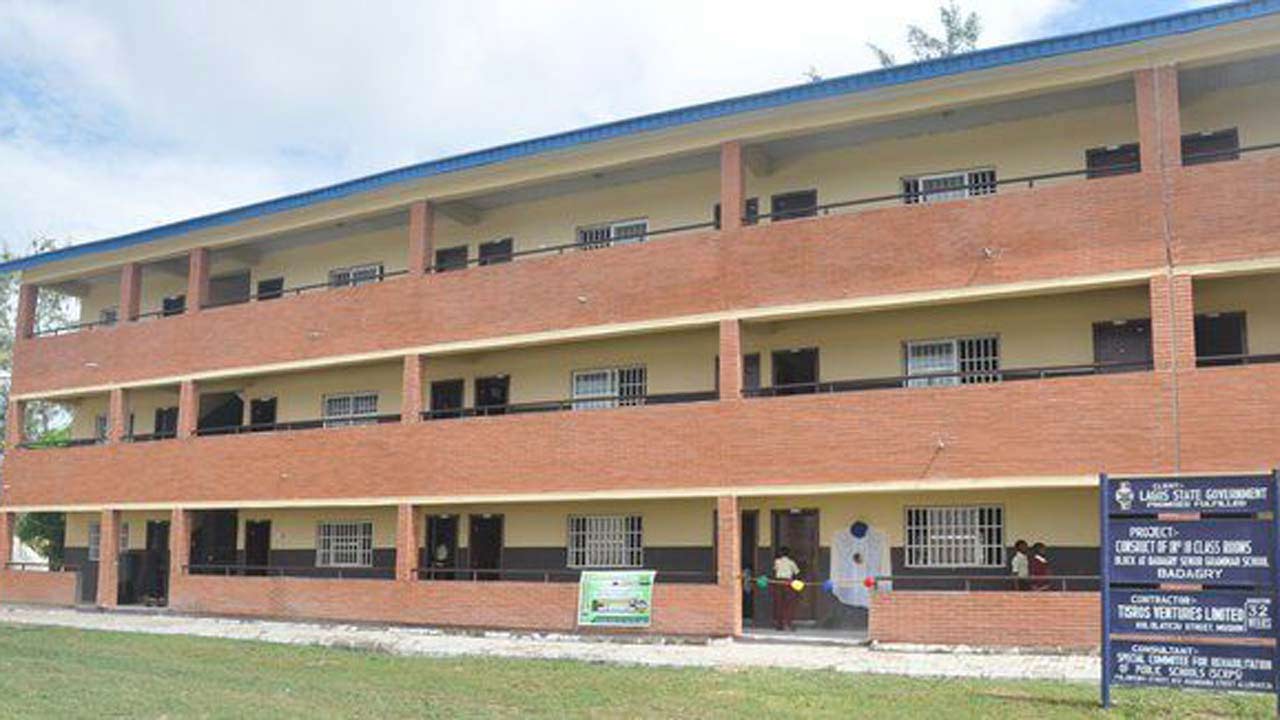UNICEF: Secondary school education should be made compulsory for every girl child
UNICEF Chief of Education, Saadhna Panday-Soobrayan, has stated that all girls must have equal opportunity to complete 12 years of basic education and that they acquire the breadth of skills necessary to transition to work or further their education and training. She said this at the Keeping Girls in School in Africa initiative dissemination workshop […]

FILE PHOTO: A school
UNICEF Chief of Education, Saadhna Panday-Soobrayan, has stated that all girls must have equal opportunity to complete 12 years of basic education and that they acquire the breadth of skills necessary to transition to work or further their education and training.
She said this at the Keeping Girls in School in Africa initiative dissemination workshop which took place in Abuja, on Monday.
- NIGERIA DAILY: Why Cases Of ‘Ritual Killings’ Are Rising
- Security Operatives gun down bandits in Niger, recover 300 cattle
“Nigeria has advanced in closing the gender gap in education, but significant regional disparities remain in enrolment, retention, and transition rates for girls. One in two girls do not transition to junior secondary school and in rural areas, for every 25 boys who complete junior secondary school, only 9 girls do so.
“This is fuelled by a complex interplay of factors including high rates of poverty, safety and security concerns, gender biases and social norms and traditions.
“While government attends to improving the supply of quality education, provision must be matched with demand for high quality education. The work of civil society organisations like Girl Child Concerns acting in concert with traditional and religious leaders and building the agency of young people to co-create solutions is how no girl child will be left behind” she added.
Africa Lead for the Keeping Girls in School initiative, Dr Mairo Mandara, noted that there was a need for traditional and religious leaders to take the lead in advocating the need for girls to at least complete secondary school.
While speaking at the conference, she said, “The data we have collected shows that when the girl child has access to full education, mortality rates are reduced, family well-being, health and income generation is incredible.
“When women and girls are allowed to complete both primary and secondary education only then have women been given the opportunity to change concepts in action. Through education, every girl will be given the opportunity to reach her full potential.”
Shehu of Bama, Usman Kyari, noted that parents in his community are encouraged to put their children in school.
“We live in a community where most people don’t take their wives to the hospital because they don’t want them to be checked by a male doctor.”
“In that light, we explain to them the need and importance of their daughters having the opportunity to go to school so that in the nearest future, they can have female doctors attend to their wives instead,” he said.
